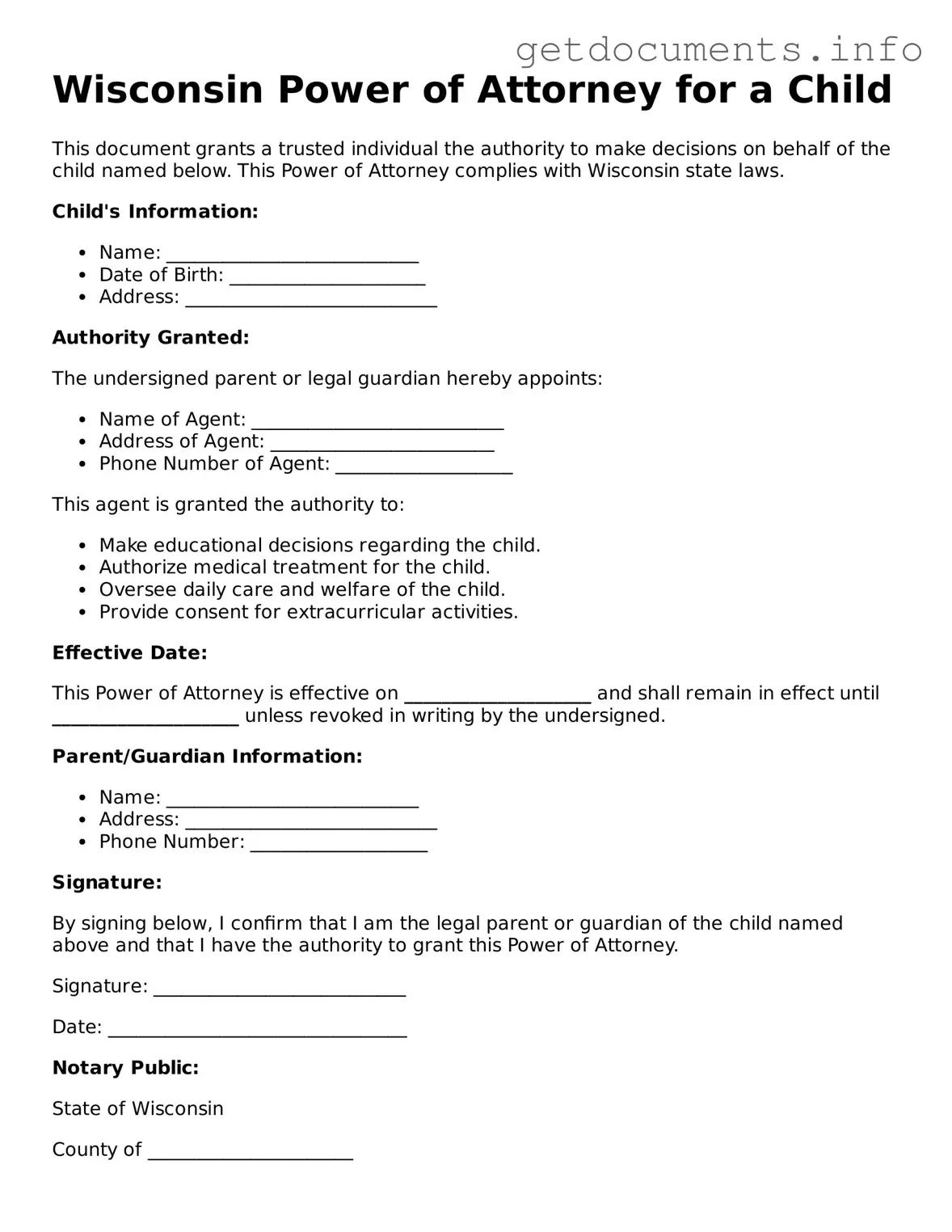Free Power of Attorney for a Child Template for Wisconsin
The Wisconsin Power of Attorney for a Child form is a legal document that allows a parent or guardian to grant temporary authority to another adult to make decisions on behalf of their child. This arrangement can be particularly useful in situations where the parent is unavailable, such as during travel or medical emergencies. Understanding the nuances of this form is essential for ensuring the child's well-being and proper care.
To fill out the form, click the button below.
Access Power of Attorney for a Child Editor

Free Power of Attorney for a Child Template for Wisconsin
Access Power of Attorney for a Child Editor
Got places to be? Complete the form fast
Fill out Power of Attorney for a Child online and avoid printing or scanning.
Access Power of Attorney for a Child Editor
or
⇩ PDF File
